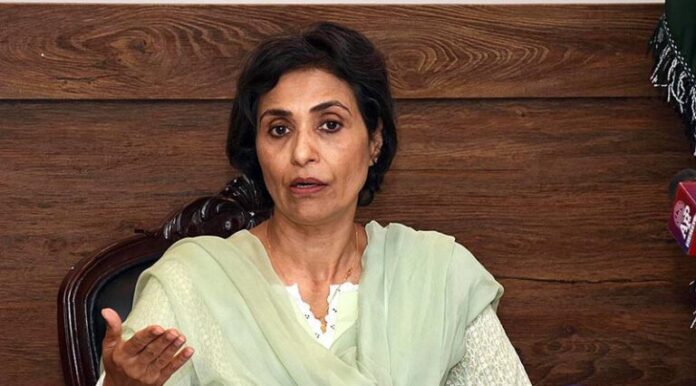- Advertisement -
ISLAMABAD, Apr 11 (APP):In a powerful ruling underscoring that harassment transcends rank and authority, the Federal Ombudsperson for Protection Against Harassment of Women at the Workplace has delivered a landmark decision in the case Naheed Saghir vs Saud ur Rehman, establishing that even those in positions of seniority can be targeted through harassment from subordinates, said press release on Friday.
Ms Naheed Saghir, a senior Branch Manager at Sindh Bank, filed a complaint under the Protection Against Harassment of Women at the Workplace Act, 2010, against her former intern, Mr Saud ur Rehman.
Despite being her junior and under her supervision during a brief internship in 2017, the Accused allegedly subjected Ms Naheed to prolonged harassment—including sending unsolicited and inappropriate messages, making repeated visits to her workplace without justification, and attempting psychological intimidation through anonymous messages and digital stalking.
The Forum noted that Mr Saud’s behavior was not only persistent but calculated to undermine Ms Naheed’s professional standing and mental peace. Even after the internship ended, the harassment reportedly continued for years, culminating in a pattern of cyberstalking and false counter-complaints intended to discredit the Complainant.
After a thorough review of witness testimonies, WhatsApp messages, video evidence, and a Federal Investigation Agency (FIA) report linking phone numbers used for the harassment to the Accused, the Federal Ombudsperson ruled in favor of the Complainant. Mr Saud was found guilty of workplace harassment, stalking, and cyberstalking, with FOSPAH imposing a penalty of Rs500,000, of which Rs450,000 is to be paid as compensation to Ms Naheed.
This case highlights how harassment is not always linked to power in the traditional sense. Even women in leadership roles can be targeted—and that’s exactly why robust mechanisms for redressal are so important.

